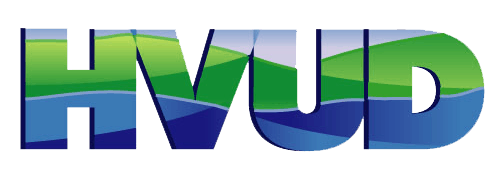HVUD – Lead Service Line Inventory FAQ
Harpeth Valley Utilities District – Lead Service Line Inventory Frequently Asked Questions
WHAT IS THE PURPOSE OF THE LEAD SERVICE LINE INVENTORY?
- As a public water system, Harpeth Valley Utilities District (HVUD) is required by the United States Environmental Protection Agency (EPA) to prepare and maintain an inventory of its water service lines by material type. The purpose is to proactively identify for replacement any lead service lines to ensure safe, reliable water.
WHAT HAS BEEN FOUND?
- Typically, homes and structures built after 1988 contain lead-free service lines due to a federal law enacted that year to reduce lead in drinking water. Some counties and cities such as Davidson County and the City of Brentwood updated their codes even before that, in the early 1970’s.
- HVUD has completed an investigation of service lines supplying homes and structures not meeting the above criteria and has found no evidence of the presence of lead service lines.
WHAT DOES THE LEAD SERVICE LINE INVENTORY MEAN FOR ME?
- If a service line was identified as potentially posing elevated lead exposure, HVUD would have had to send the customer a “Potential Lead Exposure Risk Notice” with additional information and guidance on remediation.
- Because HVUD confirmed no lead service lines, none of its customers will receive a Potential Lead Exposure Risk Notice.
HOW DID HVUD DETERMINE WHETHER SERVICE LINES CONTAINED LEAD?
- HVUD used several methods to determine whether service lines contain lead. These include:
- Confirming that HVUD has never installed lead service lines on the utility side of its water meters.
- To determine non-lead classification on the customer side of the water meter, HVUD performed an inventory on all water meter locations in its service area:
- All locations with a structure built in 1989 or after, when the federal lead ban went into effect were classified as non-lead.
- All locations with a structure in Davidson County built in 1972 or after, when the County’s non-lead plumbing code went into effect, were classified as non-lead.
- All locations with a structure built in the City of Brentwood in 1973 or after, when its non-lead plumbing code went into effect, were classified as non-lead.
- Any service line within HVUD’s service area larger than 2 inches, which are determined by Tennessee Department of Environment and Conservation (TDEC) and the EPA as being non-lead.
- Conducted visual 2-point inspections, in accordance with TDEC guidelines, whereby HVUD confirmed water meters did not have lead service lines entering (HVUD side) or leaving (customer side) the meter to a point at, or just beyond, the meter box.
- Performed statistical analysis in accordance with TDEC guidelines, whereby visual 2-point inspection was achieved via a representative sample of large, multi-structure developments where structures within it were built at the same time.
IS MY PROPERTY SERVED BY LEAD SERVICE LINES?
- During the lead service line inventory, HVUD did not find any lead service lines in its service area.
- At your request, HVUD can perform a visual inspection, or re-inspection, of the service lines at the meter to confirm there are no lead services. However, HVUD cannot confirm the service line on the customer’s side of the meter except at the meter connection.
I’VE HEARD ABOUT THE LEAD SERVICE LINE INVENTORY. IS MY WATER SAFE?
- Water sourced from HVUD is safe. HVUD’s water quality has consistently met Federal and State safety and cleanliness standards.
- HVUD regularly tests for dozens of contaminants, including lead, and is required to make water quality test results publicly available. Test results show our water does not contain harmful levels of lead. HVUD’s latest Water Quality Report
ADDITIONAL RESOURCES:
If a customer has questions about a specific location, please contact HVUD customer service
- If a customer wants to have anyone in their household tested for lead exposure, please contact your primary care physician or pediatrician. It is our understanding that the Tennessee Department of Health will not complete this test.
- If a customer wants to have their water tested for the presence of harmful levels of lead, contact a private laboratory. A link to state approved labs is available here.
